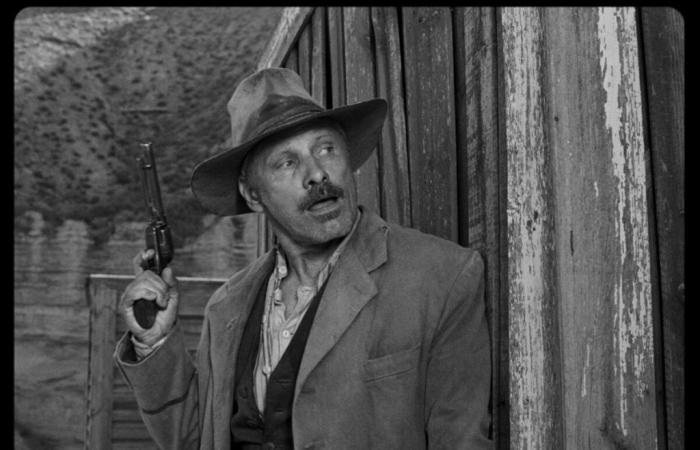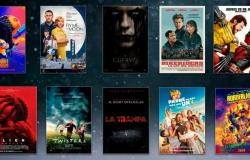
Eureka starts with the same square format as Jauja (2014), the previous film by its director, the Argentine Lisandro Alonso, and under the same lost gaze, that of the actor Viggo Mortensen in the role of a man desperately searching for his daughter. But this time the landscape is not that of La Pampa, but a rocky desert in black and white that responds to the codes of an old representation: that of the classic Western. As in so many films of the genre, in the first seconds of Eureka A mute witness emerges, a sun-worn Native American who sings like a shaman to the horizon and then disappears at the top of the landscape.
This first block of Eureka corresponds to the territory of myth, a well-known ceremony that is broken when its ritual slips, in a perfect transition, through a window of the present, a fast and prosaic journey through space and time that takes us suddenly to the heart of the movie. In an instant, the representation of the conquest of the West is left behind, and the camera enters the reality of its consequences.
The slow and distant observation that characterizes the cinema of Lisandro Alonso, who with Jauja confirmed his status as a cult director, is resolved in this second half through the routine of two women (a police officer and her niece) whose vital reluctance guides the viewer through an Indian reservation where the course of life has become as sad and depressive as the place where history cornered the native peoples. The marrow of Eureka It is in this central area and specifically in the character of the young native woman, whose difficult truth is making its way while the trail of her aunt seems to fade along the same desolate roads she patrols.
Alonso collaborates again on the script with the writer and poet Fabián Casas (who also co-wrote Jauja). This time the writer Martín Caamaño joins this tandem. Thus, treading strange terrain, always between the real and the fantastic, Eureka It is a risky conjunction of ideas, stories, places, moments and faces whose spirit communes with the landscape, gloomy in the non-places of the reserve and fiery in the jungle of the third and last act. Maybe the images of Eureka They run aground more than necessary, but when they finally fly—as in the entire final part of the second block, from the appearance of the young native’s grandfather—they fly high and open up to an exciting magic.
We are in South Dakota, near the Badlands National Park, and the sacred land of the Arapaho, the Cheyenne and the Lakota Sioux, in one of the poorest and most punished places in the United States, the Pine Ridge reservation, with third world living conditions and an alcoholism rate of 80%. It is a tragic place, and if there is any vestige of the past, it appears in a transition (or perhaps transmigration) for the memory that closes when the camera leaves Pine Ridge through the Black Hills, in the exact place where the B-side of the famous Mount Rushmore is presented as an unfinished monument. That real place seems like a giant figurehead that invokes hidden powers that are still alive, capable of opening a new tunnel in space and, as the grandfather character says, through “the fiction of time.” After the poor reservation, the story continues in the lush Brazilian Amazon jungle in the mid-seventies where the indigenous experience will move in an opaque magical terrain.
There, between the sensual course of a river and what seems like a crime of passion or fratricidal, this ambitious and difficult film closes with dreamlike flashes that magnify it, like its amazing ending and that extravagant bird, the American jaribou, which from the beginning The film’s poster itself seems to evoke all the spells and enigmas of the indigenous people.
EUREKA
Director: Lisandro Alonso.
Performers: Viggo Mortensen, Chiara Mastroianni, José María Yazpik, Rafi Pitts, Viilbjørk Malling Agger.
Genre: western/drama, Argentina-France-Germany-Portugal-Mexico, 2023.
Duration: 146 minutes.
All the culture that goes with you awaits you here.
Subscribe
Babelia
The literary news analyzed by the best critics in our weekly newsletter
RECEIVE IT
Subscribe to continue reading
Read without limits
_





